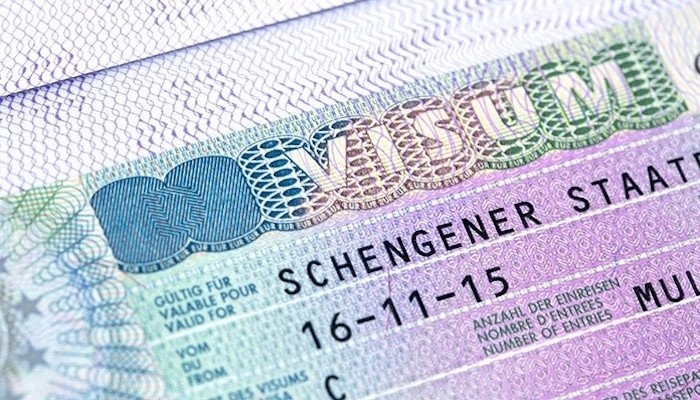Turkish President Recep Tayyip Erdoğan on Tuesday labeled a recent increase in the rate of rejection of Schengen visa applications submitted by Turkish citizens a form of “political blackmail” and vowed to resolve the issue as soon as possible.
Erdoğan’s comments came during a speech at the 79th General Assembly of the Turkish Union of Chambers and Commodity Exchanges (TOBB).
Erdogan responds to EU’s increasing rejection of Turkish Schengen visa applicants;
"We will settle the visa problem, which has been used as a political blackmail recently, as soon as possible."pic.twitter.com/VoxdbGgDqf
— Ragıp Soylu (@ragipsoylu) May 30, 2023
According to a special report by Ekonomim, a Turkish economic news outlet, Turkey has the second-highest number of Schengen visa applications after Russia. Still, the rejection rate of applications by its citizens is almost five times higher than Russia’s. According to the report, Turkey is the country with the highest rejection rate among the top five countries in the number of Schengen visa applications, namely, Russia, Turkey, Saudi Arabia, Morocco and Ukraine, the citizens of which have submitted the most applications in the last eight years.
The Ekonomim report says the increase in the rate of Schengen visa rejections has had an adverse effect on Turkish travel agents. There is an increase in demand for overseas tours, and difficulties in obtaining Schengen visa appointments have put travel agencies in a challenging position, prompting them to recommend tours to countries that do not require visas.
This comes as a result of high numbers of visa rejections and long appointment delays, particularly from Germany and other European countries.
The long waiting periods for visa appointments, increased rejection rates and the short duration of visas are fueled by Turkey’s current economic situation and the increasing number of asylum applications filed by Turkish citizens in EU countries, Nikolaus Meyer-Landrut, the head of the EU delegation to Turkey said in October 2022.
According to analysts, President Erdoğan’s war on high interest rates, driven by his view that high rates are the “mother and father of all evil,” led to drastic consequences for the country’s economy. The lira plummeted and inflation soared, reaching an official rate of 85 percent in October 2022, with unofficial estimates nearing 200 percent.
Many foreign investors have now retreated due to Turkey’s political instability and Erdoğan’s takeover of previously impartial state institutions. Moreover, the central bank’s net international reserves have dropped into negative territory for the first time since 2002, underlining the severe financial strain the country is under.
A report submitted to the Parliamentary Assembly of the Council of Europe (PACE) by Turkish lawmaker Ziya Altunyaldız of the Justice and Development Party (AKP) in July 2022 showed an increase in the rejection rate of Schengen visa applications submitted by Turkish citizens from 4 percent in 2014 to 12.7 percent in 2020.
Altunyaldız’s report, titled “The Abuse of the Schengen System as a Political Sanction by the Member States of the Council of Europe,” alleges “double standards” when Turkish citizens apply for a Schengen visa. The report calls for “minimum common standard principles” and “clear and universal” rules for third-country citizens and suggests conducting a survey to address the issue.

